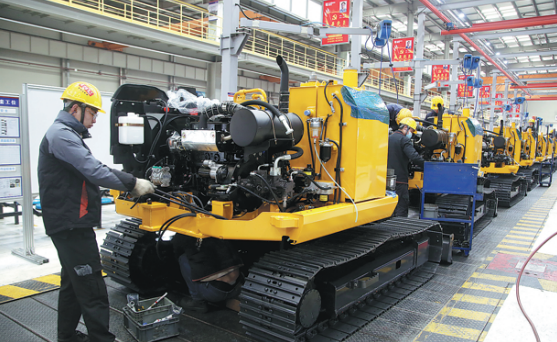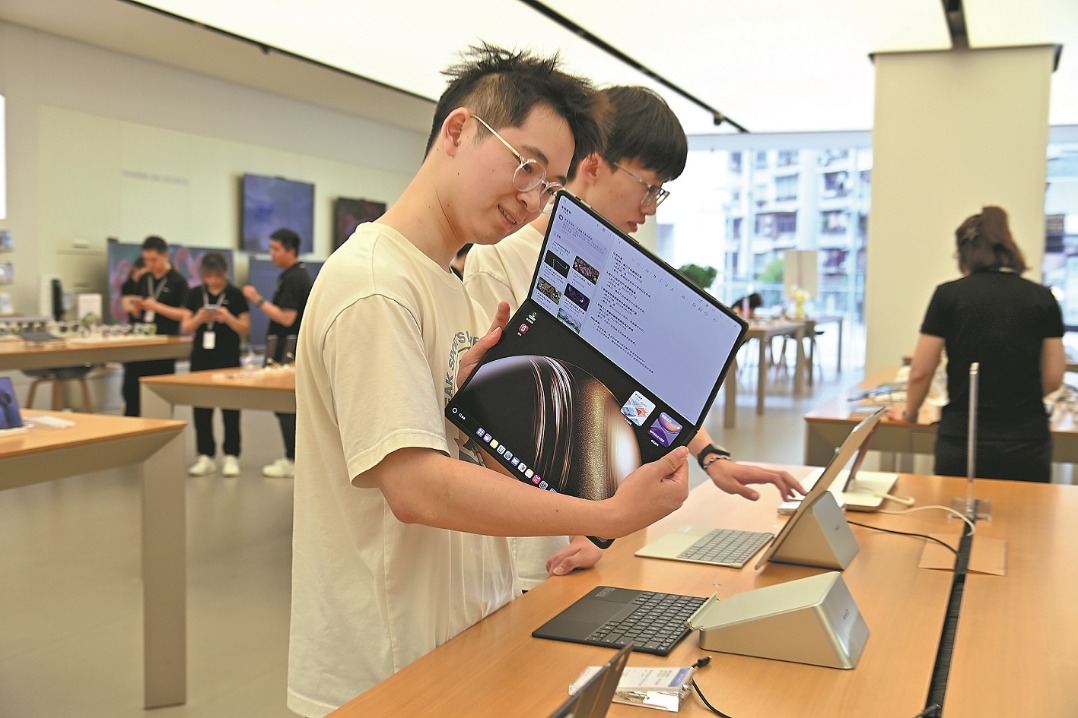Trade and investment are set for bloc boost


According to a recent Standard Chartered survey of Chinese companies focusing on the ASEAN region, more than 60 percent of respondents said they are looking to expand their sales and/or production in the region by at least 10 percent over the next 12 months.
The various drivers of this targeted growth include a growing customer base in the region, and the enhanced manufacturing capabilities within it, according to a report based on the survey findings.
The report said 56 percent of respondents are focusing on the ASEAN region to gain access to the large and growing consumer market, while 44 percent are expanding to diversify their production footprint.
It also said the RCEP agreement, signed by 15 Asia-Pacific nations, including all members of the ASEAN, last November, is expected to attract more investments into the region, with 88 percent of respondents planning to increase investments by at least 25 percent over the next three to five years. About 42 percent of the companies plan to increase investments by at least 50 percent.
Experts said China's firm stance on reforms and opening-up, as reiterated by President Xi Jinping on various occasions, has boosted Chinese companies' confidence and willingness to go global. The signing of the RCEP is proof of China's strong support for multilateralism and globalization, they said.
The RCEP demonstrates China's efforts to promote and strengthen multilateral economic ties. As the world's largest free trade agreement constituting roughly 30 percent of the world's GDP and population, the RCEP will stimulate trade notably among markets involved in the Belt and Road Initiative in Asia, according to Jia Jingwei, vice-chairman of Swiss Re Corporate Solutions' China branch.
Zhang Jianping, director-general of the Beijing-based China Center for Regional Economic Cooperation, stressed the RCEP is designed to eliminate tariffs on as much as 90 percent of goods traded between its signatories over the next 20 years once it comes into effect.
"The RCEP agreement will have a far-reaching impact on regional trade and investment facilitation and economic integration, as its signatories are to form closer ties and partnership," Zhang said, adding economic benefits for the participants include not only the expected huge increase in trade and investment, but also in improvement of employment and people's welfare.
As the pact also contains provisions on government procurement, competition policy, e-commerce and intellectual property protection, the flow of factors for production in the region is expected to be accelerated to enhance global supply value chain, he said.
Chen said his company has already established a network of sales agents covering all the ASEAN markets. Many of them have partnered with the company for more than 15 years.
The company set up its Asia-Pacific headquarters in 2011 in Singapore, and a regional after-sales service center, including for supplies of equipment components, training, and services for equipment maintenance, for the ASEAN region and the wider area of Asia-Pacific.
Given the growth potential in the region, the company set up a subsidiary in 2019 to focus on both trading and manufacturing in Indonesia, the largest nation in Southeast Asia that already accounts for nearly half of regional market demand for engineering machinery with even greater potential for growth in the future.
The company is currently conducting research on investment opportunities in other ASEAN markets, as the RCEP will significantly improve facilitation and liberalization of trade and investment in the region, Chen said.
Qian Xiaolun, head of ChoiceMMed, a Beijing-based medical equipment manufacturer that has exported products to more than 100 countries, said the company is aware of the increasing business opportunities in the RCEP region, including the ASEAN markets.
- CPC boosting political ties around world
- Commitment to Party leadership key behind nation's growth, envoy says
- Experts: China to remain haven for foreign investors
- Xi leads China's final sprint to achieve milestone Xiaokang goal
- Multilateralism, equity needed more than ever, say experts at peace forum




































